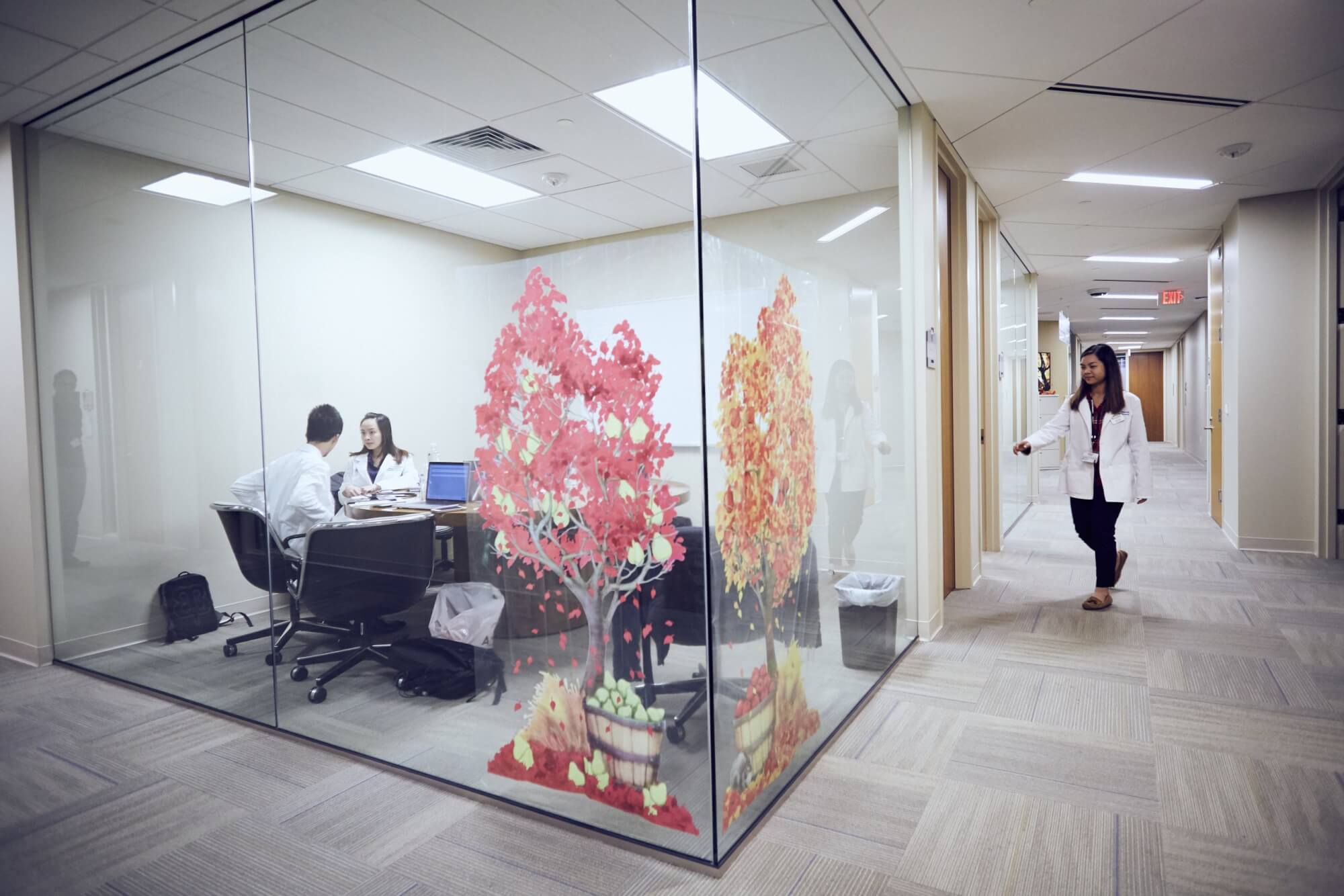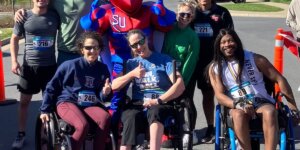A group of Shenandoah faculty has recently collaborated in writing a textbook about spirituality and its importance in pharmacy practice.
The textbook, “Spirituality in Pharmacy: Providing Holistic Care—It’s More Than Medicine,” was published by the American Pharmacists Association in June and is the first such textbook in pharmacy.
Mark S. Johnson, Pharm.D., BCPS, is professor of pharmacy practice and the director of postgraduate education at the Bernard J. Dunn School of Pharmacy. He is the editor and author of the textbook.
Shenandoah faculty who co-authored chapters in the book are: Anne Schempp, Ed.D., PA-C; Lorie Henley, BSN, MSEd; Leigh Jenks, MMT, MT-BC; and Petra Schweitzer, Ph.D. Kaytlynn Diskin ’21, a Pharm.D. candidate, also served as an author.
According to Johnson, there is increasing evidence over the past several decades that correlates the value of spirituality in the care of patients. The Bernard J. Dunn School of Pharmacy has taught an elective course in spirituality for over 10 years and has incorporated these principles both in other pharmacy courses and interprofessionally.
The newly published textbook explores such topics as why spirituality is important in health care; different spiritual practices and faith traditions that may be important to patients; applications of spiritual care in pharmacy practice including taking a spiritual history; spirituality course development in pharmacy; future areas for development and research in pharmacy; and real-life pharmacy practice scenarios.
This textbook will inform and guide the development and implementation of spirituality instruction in pharmacy education and become a sentinel publication in the field by increasing awareness, understanding, application, and further need for research in spirituality in the profession of pharmacy.”
Mark S. Johnson, Pharm.D.
Schweitzer, professor and director of Gender and Women’s Studies, contributed to the chapter titled, “Complementary Therapies that Patients May Practice.”
“The chapter was about heartfulness meditation as a means to regulate and integrate the mind and the heart,” she said. “It offers simple and effective tools that can be incorporated into our daily routine by everybody.”
Henley co-authored the chapter “Interactions and Applications with Other Health Care Professionals and the Faith Community.”
“As the Faith Community Nurse Education Coordinator at Shenandoah University’s School of Nursing, this project was an exciting opportunity for me to educate other professions of the important role of nurses and faith community nurses as they strive to provide comprehensive client care and support patient-care outcomes impacted by spirituality, including spiritual care,” Henley said.
Jenks, an adjunct instructor in music therapy, wrote about music therapy and how it treats the entire person—mind, body and spirit. She encouraged other health professionals to consider music therapy as a viable option in addition to medicine.
“I have seen firsthand how music therapy can work in conjunction with medication administration,” Jenks said. “It can take the edge off while a patient is waiting for their pain to be diminished. It has the ability to redirect one’s attention from their pain and assist them in relaxation, reminiscence or active music making.”
Schempp, program director & associate professor in the Division of Physician Assistant Studies, helped co-author “Why Spirituality in Pharmacy and How to Address.”
Diskin contributed to the chapter “Understanding Faith Traditions That Patients Practice.”




